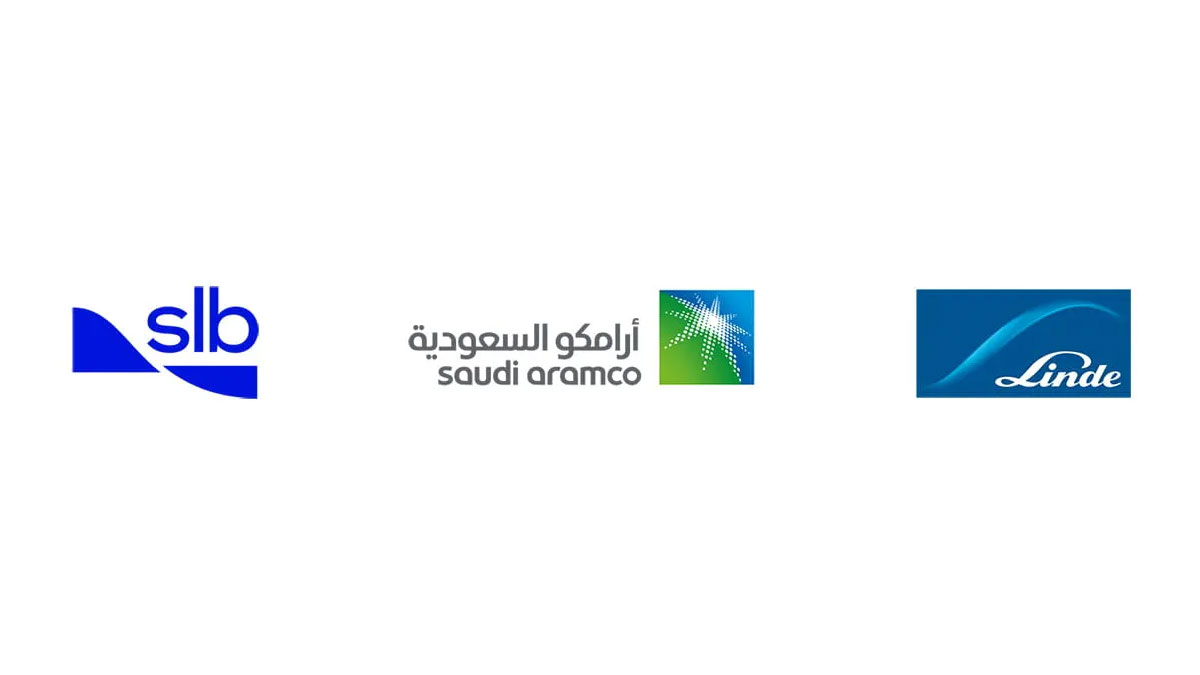One of the World’s Largest Carbon Capture and Storage Hubs

SLB, Aramco and Linde enter agreement for one of the world’s largest carbon capture and storage hubs.
The first phase of the project is expected to capture and store up to nine million metric tons of CO2 annually, with construction completed by end of 2027. Later phases are expected to further expand its capacity.
This agreement paves the way for the development of a carbon capture and storage (CCS) hub in Jubail, Saudi Arabia, that is expected to become one of the largest globally.
The captured CO2 will be transported through a pipeline network and stored below ground in a saline aquifer sink, leveraging the Kingdom’s significant geological potential for CO2 storage.
The project supports Aramco’s ambition to achieve net-zero Scope 1 and Scope 2 greenhouse gas emissions across its wholly owned operated assets by 2050, and its interim target of reducing upstream carbon intensity by 15% by 2035.
SLB’s view
“SLB is proud to be a part of ground-breaking efforts to enable abatement of millions of tons of CO2 annually through the Jubail CCS hub. Leveraging our proven portfolio of CCS technologies and extensive experience in complex CCS projects around the world, we are confident that SLB will play a critical role in advancing this important initiative,” said Gavin Rennick, president of SLB’s New Energy business. “This project aligns perfectly with our commitment to industrial decarbonization, and we look forward to collaborating closely with Aramco and Linde to make it a success.”
Aramco’s view
“CCS plays a critical role in furthering our sustainability ambitions and our new energies business. This announcement represents a step forward in delivering on our strategy to contribute to global carbon management solutions and achieve our emission mitigation goals,” said Ashraf Al Ghazzawi, Aramco EVP of Strategy & Corporate Development. “Aramco’s collaboration with SLB and Linde demonstrates the importance of global partnerships in driving technological innovation, reducing emissions from conventional energy sources and enabling new, lower-carbon energy solutions. This CCS hub is among several programs that will enable us to meet rising demand for affordable, reliable, and more sustainable energy.”
The announcement was made during the Saudi Green Initiative Forum held in Riyadh, Saudi Arabia, and reflects a circular carbon economy approach to reducing emissions that will contribute to the Kingdom’s 2060 net-zero target.
Saudi Arabia’s latest progress in energy transition
The fourth edition of the Saudi Green Saudi Initiative Forum (SGI Forum 2024) concluded on December 4, 2024, in the Green Zone at the 16th session of the Conference of the Parties (COP16) to the United Nations Convention to Combat Desertification (UNCCD), hosted in Riyadh. Inaugurated by Minister of Energy Prince Abdulaziz bin Salman bin Abdulaziz, the SGI Forum highlighted Saudi Arabia’s latest progress in energy transition and the key role of women and youth.
Over the course of two days, the forum featured 50 speakers in 25 sessions, and more than 1,500 attendees from the public and private sectors participated.
During the forum, the Kingdom announced the launch of five initiatives with a total value of SAR225 million, signed 14 memoranda of understanding, and held fruitful discussions aimed at accelerating climate and environmental efforts.
The forum featured the participation of prominent energy sector leaders, including Saudi Aramco President and CEO Amin H. Nasser and TotalEnergies Chairman and CEO Patrick Pouyanné.
Saudi Arabia is making significant strides in its renewable energy journey. The nation aims to reach a substantial 130 gigawatts of renewable energy capacity by 2030. To date, 6.2 gigawatts have been successfully integrated into the grid, and 20 gigawatts worth of projects were initiated in 2024 alone. With a robust pipeline of 44.2 gigawatts under development, the Kingdom is well-positioned to power over 7 million homes with clean electricity.
Since the launch of the Saudi Green Initiative in 2021, the Kingdom has successfully planted over 100 million trees and rehabilitated 118,000 hectares of degraded land, an area larger than 165,000 football fields. This contributes to its goal of planting 10 billion trees and combating desertification.






